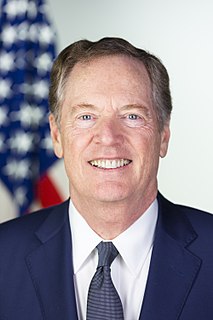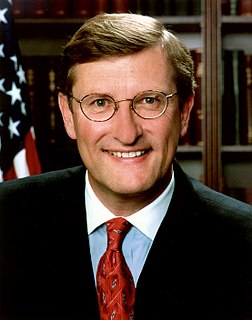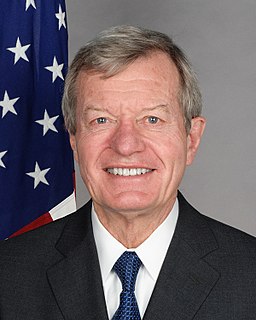A Quote by John Redwood
Most agree, whatever their party political position, that the West can and should open its agricultural markets more fully to the products of the poorer countries of the globe. They are agricultural societies that need our markets more than our charity.
Related Quotes
Colombia was a big wheat producer in the 1950's. That was eliminated by what sounds like a nice plan, called "Food for Peace. " It's a plan by which US taxpayers subsidized US agribusiness to send food to poor countries. This, of course, destroyed the domestic agricultural markets of these countries, opening these markets to US agribusiness.
Like its agriculture, Africa's markets are highly under-capitalized and inefficient. We know from our work around the continent that transaction costs of reaching the market, and the risks of transacting in rural, agriculture markets, are extremely high. In fact, only one third of agricultural output produced in Africa even reaches the market.
The international institutions go around the world preaching liberalization, and the developing countries see that means open up your markets to our commodities, but we aren't going to open our markets to your commodities. In the nineteenth century, they used gunboats. Now they use economic weapons and arm-twisting.
Look at our farmers' markets today, bursting with heritage breeds and heirloom varieties, foods that were once abundant when we were an agricultural nation, but that we have lost touch with. Bringing all these back helps us connect to our roots, our communities and helps us feed America the proper way.
Look at our farmers markets today, bursting with heritage breeds and heirloom varieties, foods that were once abundant when we were an agricultural nation, but that we have lost touch with. Bringing all these back helps us connect to our roots, our communities and helps us feed America the proper way.

































